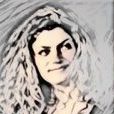Yes, the liturgical poem (piyyut) “Im Nin'alu” signifies orientality. But what is Orientality? Is this traditional, perhaps even religious, Yemenite Judaism? Is this Yemen similar to exotic India? Is this a symbol of the mystical/spiritual "other" (as we already mentioned India...)? And maybe it is a symbol of Kabbalah, another contemporary "Other" that turns out to be similar to all the other "Others", including the "Other East"...
In this article we follow the change process of “Im Nin'alu” as a symbol, which symbolizes different things each time. The peyote has - it turns out - gone a long way, erasing traditional Yemenite Judaism into the contemporary universal and spiritual-alternative space.










